
The WordMill in Axat. I spent 10 days wandering around this tiny town, immersed in the Pyrenees.
The Lebanese-Canadian songwriter and workshop leader explains how retreating to Southern France helped her to find time and inspiration
Let’s face it, writing is scary. Singing makes you feel vulnerable. Performing your own songs is downright daunting. But what if we changed those things? What if writing became freeing; singing became liberating? The stage became absolutely joyful, so much so that you allowed yourself to be immersed in its magic? You finally understand that you’ve accomplished one of the most amazing feats: you’ve written, performed and shared your little story with the world.
I have always been a firm believer of approaching music in a way that encompasses your very basic needs, whether it be the need to tell a narrative or simply to let go of your overbearing emotions. The reason I maintain those as extremities is because whether or not you are just starting out as a songwriter, or are already employed professional, the process will always be the same. I don’t wish to preach and give you the technical knowledge; they are very tailored to each person. Instead, I wanted to capture a moment in my own journey that shed some light on the songwriting process. Song imitates life, and at the end of the day, if anything, it’s a culmination of experiences I’ve picked up along the way as a person, collaborator, as well as a musician myself.
So here we are. This year I found myself in need of change – that’s always a fine starting point – and I literally pushed myself to get out there and have a songwriting residency. For those of you haven’t already, have a read on why I think it’s a must for songwriters.
Finding time in Axat, France in June 2019
Tickets were bought. The creative hiatus was over. I was determined to get myself out of my comfort zone and really allow myself the time and space to be inspired. That’s the first thing I will tell you: time.
We always have time, but if we want to make the time for our work, we must allow the space for it. I won’t even begin to outline all the excuses I’ve given myself, like most of us. I live in London, one of the biggest and certainly most chaotic cities in Europe. I have to make ends meet. Then I feel guilty for not allowing the time to focus on my art. I wait till the week before to get excited about a gig I’m putting on. My voice is strong, I’ve done my training, and I’m thankful for a powerful diaphragm, but the problem is beyond that. In my workshops I realised I was giving too much of my energy, often overcompensating with my own voice, and my own personal time to meditate, go over the day so I could garner the right type of energy for my own projects. I finally accepted that what lay behind the excuse of ‘time’ was, you guessed it, fear.

I couldn’t carry my piano with me (it was sitting patiently at The WordMill).
So it made sense to accept a funded residency in a tiny village in the south of France. The name of this beautiful place was The WordMill. It made sense. It made sense because I allowed myself to let things unfold because of my need to write, not a need to control the amount of productivity. I spent 10 days wandering around this tiny town, immersed in the Pyrenees. There was one coffee shop, one bakery, and endless vistas of the river Aude. All I had to do was walk along it, and disappear into the silence of the mountains. I couldn’t carry my piano with me (it was sitting patiently at The WordMill) but I did have my voice, a light Zoom recorder and my notebook.
Our first thoughts are the gateway to developing any song
On my second day, I found a mossy moot rock which looked comfortable and was in the shade amidst the 38-degree sun. I sat down, and as if on purpose the wind decided to sift through the fields in front of me. I did what any singer atop a mountain, all alone with their thoughts would do. I started to hum and I wrote this down: “I start to hum, because through song, I try to make sense”.
This is the idea, my friends. We have to unfold and unveil every single part of ourselves that makes us vulnerable – it is what will later develop into art. It is what makes for art in its purest most majestic form. And this is what, in my experience, audiences will always respond do. Singing is always going to be one of the most exposing of all musical instruments, in my humble opinion. So why not enjoy it? You are always able to tell a story. Whether or not you choose to tell it is up to you – but the process is always the most challenging and rewarding bit.
After this fine morning, I practically jumped over little rocks and streams (I have to make this entertaining, you see) to get back to The WordMill and I had to write about this moment, of just being. It resulted in Turn Of The Wind. I wrote about what it’s like to just allow things to happen. It was a dedication to my time in Axat, by the river Aude. About singing. About accepting that free cup of coffee at the local bar-turned-café Centrale. About meeting an English DJ who happened to go to school with Giles Peterson. No real heart-wrenching sadness this time (one must admit that is what we want to write about most times) but about the beauty of gratitude and realising that the only constant is change. Thanks Aristotle.
So my friends, behind technique is the discipline of developing your need for creative maturity. You are your own story, so allow yourselves to unfold. Get out there and do a residency. Get out there and accept that challenge.
Lara Eidi is a singer-songwriter and pianist based in London. An avid performer and teacher, she blends folk, jazz and her Lebanese-Canadian roots into her music. Her next performance is on 6 December 2019 at Christ Church Highbury, London. For more information, visit laraeidimusic.com


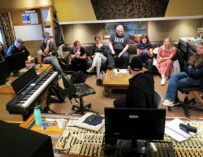
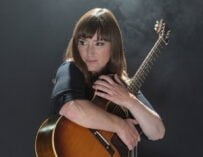
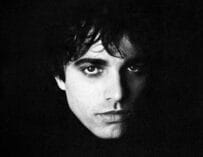
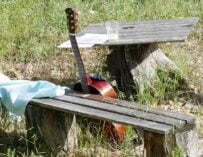

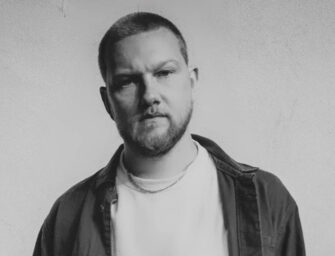
























Related Articles